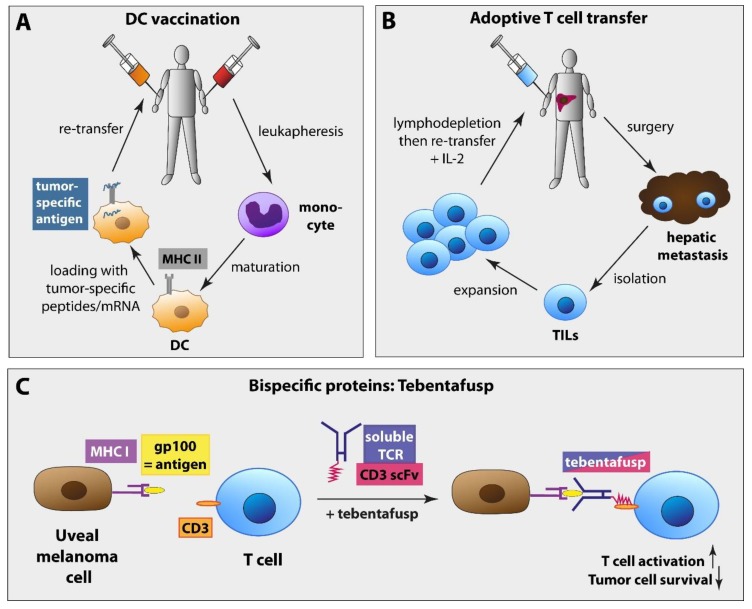Figure 2.
Promising future immunotherapy options for UM patients. (A) Dendritic cell vaccination: Monocytes or other hematopoietic progenitors are isolated from the tumor patient via leukapheresis and develop in vitro in the presence of stimulatory cytokines to mature DCs. These are then loaded with tumor-specific peptides (i.e., gp100, tyrosinase) or mRNA encoding these antigens and retransferred into the patient in order to boost the anti-tumor response. (B) Adoptive T cell transfer: TILs are isolated from hepatic metastases and expanded in vitro. After a lymphodepleting chemotherapy, the patient receives the expanded TILs followed by IL-2 administration. (C) Bispecific proteins, i.e., IMCgp100 (tebentafusp): The bispecific protein IMCgp100 combines a TCR against gp100 and CD3 scFv. The engineered TCR of the molecule binds to gp100 on UM cells presented by the MHC class I protein HLA-A*02:01, and the anti-CD3 antibody fragment binds to and activates CD3+ T cells. DC = dendritic cell, TILs: tumor-infiltrating lymphocytes, CD3 scFv = anti-CD3 single-chain antibody fragment, MHC I = major histocompatibility complex I, TCR = T cell receptor, IL-2 = interleukin-2.

